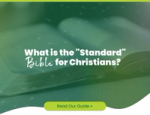Transforming the world through politics
Lynn Williamson
They say there are only two topics that should be avoided in polite conversation: Religion and politics. But Christians wanting to make a difference in their communities and in the nation see politics as the route to achieve that.

Often viewed as messy and murky, the world of politics has been ignored by some Christians. In the same way, religion has also been a subject seen as out of bounds by many politicians.
Christians in Politics (CIPOL) is an organisation working to bridge the gap between religion and politics. What is particularly remarkable is the fact that CIPOL is an umbrella group for three very different organisations.
The Christian Socialist Movement (CSM), the Conservative Christian Fellowship (CCF) and the Liberal Democrat Christian Forum (LDCF) all want to encourage Christian involvement in politics, and it’s for that reason that they work together, despite obvious political differences.
“As a church for so long we’ve been good at shouting from the sidelines but we’re there to be an encouragement for people to get stuck in on the pitch,” Andy Flannagan from CSM explains.
Creating a Theocracy?
Rather than create a specifically Christian party, like some have tried to do, these three organisations support what the leader of CSM describes as a “salt and light” approach.

Andy Flannagan
Director of Christian Socialist Movement
“If you’re involved in a Christian party… if that party was winning seats and forming government, you’d have a bunch of Christians ruling the rest of the country. The philosophical thick end of the wedge is a theocracy.” Andy explains.
“There’s not a great historical precedent of how that works out! I just don’t think it’s a sustainable model that works."
Colin Bloom from CCF agrees. He thinks a theocracy is potentially “dangerous”, and not part of a Christian’s calling.
"We’ve got far more to do in getting Christians engaged in politics without creating a whole new brand of it. People have tried to set up the Christian party and it’s never taken off, it’s never been popular. The important thing is to engage with a mainstream political party and be salt and light in there and make a difference from within.”
But Chairman of the Scottish Christian Party John Cormack disagrees. “I would say, where is the Christian influence, the salt and light influence being vocalized in the main parties today? The Christian influence has been marginalized. If the mainstream parties were being more Christian in the policies they were giving out and the policies they were following, there wouldn’t be a need for a Christian party.”
Andy agrees that's it's "difficult" and there are "challenges" in being salt and light, but believes it is possible. "We shouldn’t kid ourselves that we can stay separate from the 'system'. Every time you fill your car with petrol, or use your bank, or shop in a supermarket, you are aligning yourself with some pretty ropey practices too. Daniel and Joseph had the same problem. We can't avoid being part of the system, so let's be involved in changing it for the better. The salt and light thing really works!"
Believing Christians are currently being persecuted, John wants Christians to unite under one banner and “make a stand”.
“The Bible doesn’t just apply to Christians and the principles the Bible espouses apply to the whole of the nation. There are consequences for sinful actions and this nation is in a terrible state. Are you trying to tell me that having good Christian principles and having good Christian leaders leading this country and promoting God’s ways rather than man’s ways, that that’s going to have a negative impact on the country?”
Finding common ground
Although Andy passionately believes in being salt and light, he is not against the Christian Party. "I regularly affirm the groups that are working outside the main parties. We need the Elijahs shouting in the wilderness as well as the Obadiahs working on the inside. It's not either/or it's both/and."

Colin Bloom
Director of Christian Conservative Fellowship
"It is actually a pragmatic, strategic issue – if you take a step back to look at the distribution of kingdom resources at the moment in the UK, there are a lot more resources focused on communicating from outside the system than working on the inside. So we are simply suggesting that some more folks should make that journey in."
With the Christian Party seeking to form policies that all Christians would agree with, could this be draining Christian support for mainstream parties, as people look for a Christian alternative?
“A lot of Christians don’t believe they can be involved in something without agreeing with everything,” Andy says.
“That’s a huge philosophical mistake", Andy argues. "At the end of the day we don’t agree with everything our husband or wife thinks but we find a way to work together. We certainly don’t agree with everything our church believes but we find a common cause and work together. There is one party and I agree with 100% of their policies. But it’s called the Andy Flanagan party!”
While some parts of America (particularly what has been termed the ‘Bible Belt’) believe Christians must always adopt a right wing (Republican) Conservative view, Colin disagrees. “I don’t think any one party has a monopoly on Christianity”.
Left, Centre or Right?
But when asked to expand on his political views, Colin is equally clear: “I feel very passionately that if we don’t want the poor to be poor anymore then socialism is a failed experiment. Given that we’ve had enough time to look at all the alternatives, I’m absolutely persuaded that centre right political ideologies is the right way forward.
“But I just really want to stress this; that I absolutely honour, love and respect my colleagues of all political persuasions whether they agree with me or not.”
Claire Mathys from LDCF says she felt the Lib Dems cared the most about “social justice, and addressing the inequalities in society. The three core values of the party are liberty, equality and community, and the vision of the party is to create a society where no one is enslaved by poverty, ignorance or conformity.”
“This is a vision I can buy into. They are also a very green party, and most concerned with the enormous crisis of climate change and the impact that is having on the poorest people around the world.”
A Christian nation?
Much debate has been sparked in recent months as people question whether the nation is still a Christian country.

Claire Mathys
Director of Liberal Democrat Christian Forum
“We have a Christian heritage, and many Christian values in our society,” Claire says, adding, “but that's not all of what it means to be a Christian, and I'm not sure it's particularly helpful to encourage people to think that if they were born here, and they generally try to be a good person, that they are therefore Christian.”
“It's certainly not true that a majority of people have a personal faith in Jesus and go to church every week. But it is good for us as a society to keep a sense of identity in Christianity, because if we don't, what else will fill that gap?” Claire argues.
Colin is adamant that England is a Christian country. “Our Prime Minister thinks so. Of course it’s a Christian country. Even Baroness Warsi says it’s a Christian country and she’s a Muslim woman. There’s no doubt we are more Christian than any other faith…We shouldn’t be embarrassed about it at all, we should celebrate it and embrace it.”
“I’m proud of the fact we have Ministers, a Prime Minister and Party Chairmen that are standing firm and not giving in to the bully boy tactic of the secularist movement.”
Colin is also critical of Christian groups who he says “pretend that Christians are being marginalized”.
“I would like to see some of them being more grateful for some of the firm lines the Conservative party is taking,” he says.
But John doesn’t believe the Conservative party is taking a stand and accuses David Cameron of being “double minded”.
“He’s been very selective about his Christianity and his Christian principles…He says to one audience what they want to hear, then on the other side he says to another audience what they want to hear.”

John Cormack
Chairman of the Christian Party in Scotland
“If David Cameron was so keen on implementing biblical Christian principles then he wouldn’t be seeking to redefine what marriage is. It’s not about equality it’s about what God has said about the standard of family.”
Christians in Politics isn’t simple, in fact it’s full of paradoxes. Colin, Andy and Claire all share a commitment to social justice, yet their three parties often have opposing policies in how best to go about it. The three leaders welcome Christians into any political party, while holding a strong allegiance to their own party. And on questions of how the current government views Christianity, they are divided.
But one thing that unites all three leaders is their belief that Christians must engage with the political sphere. It’s this one vital belief that holds them together.
Regardless of whether Christians will be more attracted to the “salt and light” approach Christians in Politics advocate for or rallying cry of “make a stand” that the Christian Party have adopted, it seems religion and politics definitely do mix after all…
Latest Blogs

Gifts
Finding Your Symbol of Faith: A Guide to Christian Cross Necklaces
Looking for the perfect symbol of faith? Explore our guide to Christian cross necklaces, from rustic wooden designs and sturdy men's chains to elegant silver pendants.

Gifts
The Best Christian Gifts for Under £20
Looking for a meaningful gift that won't break the bank? Explore our guide to the best Christian gifts under £20, from inspiring journals to beautiful home decor.

Gift Guide
15 Confirmation Gift Ideas for Boys and Girls
Celebrating a confirmation? Discover 15 meaningful gift ideas for boys and girls, from youth Bibles and jewellery to inspiring journals and keepsakes.

Bible
30+ Powerful Quotes About the Bible (For Inspiration in 2026)
Looking for inspiration? Discover a curated collection of the most powerful quotes about the Bible, from famous historical figures to modern theologians and Scripture itself.

Bibles
What is the "Standard" Bible for Christians?
Is there an "official" Bible that all Christians use? We explain the difference between the NIV, KJV, and ESV, and help you find the standard text for your church or personal reading.

Bible
"I Keep Failing to Read the Bible" – 5 Tips to Make the Habit Stick
Do you start a Bible reading plan only to quit a few weeks later? Stop the cycle of guilt. Here are 5 psychological tips and practical changes to help you build a Bible habit that actually lasts in 2026.
